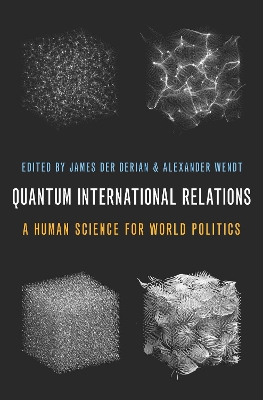The contributors to this volume are motivated by a common apprehension and a common hope. The apprehension was first voiced by Einstein, who lamented the inability of humanity, at the individual and social level, to keep up with the increased speed of technological change brought about by the quantum revolution. As quantum science and technology fast forward into the 21st century, the social sciences remain stuck in classical, 19th century ways of thinking. Can
such a mechanistic model of the mind and society possibly help us manage the fully realized technological potential of the quantum? That's where the hope appears: that perhaps quantum is not just a physical science, but a human science too.
In Quantum International Relations, James Der Derian and Alexander Wendt gather rising scholars and leading experts to make the case for quantum approaches to world politics. As a fundamental theory of reality and enabler of new technologies, quantum now touches everything, with the potential to revolutionize how we conduct diplomacy, wage war, and make wealth. Contributors present the core principles of quantum mechanics-entanglement, uncertainty, superposition, and the wave
function-as significant catalysts and superior heuristics for an accelerating quantum future. Facing a reality which no longer corresponds to an outdated Newtonian worldview of states as billiard balls, individuals as rational actors or power as objective interest, Der Derian and Wendt issue an urgent call for a new
human science of quantum International Relations.
At the centenary of the first quantum thought experiment in the 1920s, this book offers a diversity of explorations, speculations and approaches for understanding geopolitics in the 21st century.
- ISBN10 0197568211
- ISBN13 9780197568217
- Publish Date 30 June 2022
- Publish Status Forthcoming
- Publish Country US
- Imprint Oxford University Press Inc
- Format Paperback
- Pages 408
- Language English
